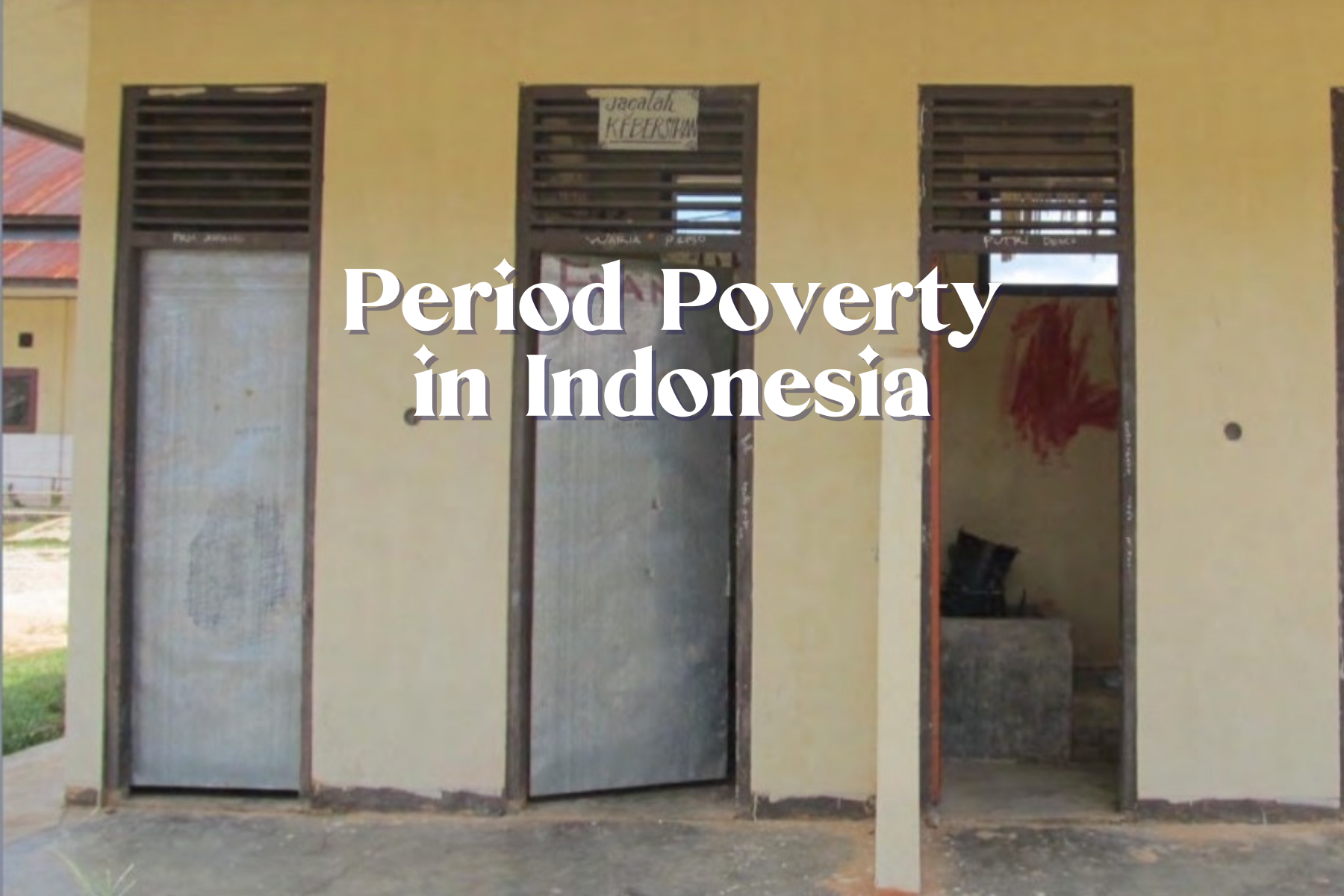By Leilani H
What is Period Poverty?
Period poverty is often defined as lack of access to period products such as pads and tampons. This definition may be limiting as period poverty extends beyond access to products; the lack of access to clean water, sanitation and hygiene (WASH) or the basic facilities women need to change their pads and manage their periods with dignity is a significant aspect of period poverty.
Menstrual equity and period poverty is a major issue for women of low socio-economic status worldwide. But have you ever wondered what it is like to have your period in a developing country?
A box of pads in Indonesia costs approximately 50 cents to a dollar. Yet many Indonesian women do not have the means to purchase a month's supply of menstrual products during a trip to the grocery store. They purchase one pad with each trip to the warung (little shack shops stocking general needs) throughout the month. After replenishing their supply, pad by pad, they hope the amount they’ve accumulated would last them for their entire period. If the amount of pads isn’t enough for the month they would have to resort to tissues or cloths that might not be sterile or hygienic.
Read more on Period Poverty in Indonesia - It’s real and near to us
📚 Education and Menstruation 🎒
The capital city of Indonesia, Jakarta, is a metropolitan sprawling with marble-floored malls and skyscrapers, but the inner city and rural neighbourhoods and public schools are a completely different sight. Many public school facilities and bathrooms are in horrible conditions - imagine having to change your pad in an extremely dark shack with no locks on the doors for privacy. Without a bin to dispose of pads or running water, these conditions prohibit girls from managing their period during the school day hygienically. Research from UNICEF Indonesia found that school aged girls would withhold drinking water so they do not have to go to the bathroom during the school day. A big portion also never change their pads throughout the 9-hour school day out of fear that other students would see soiled pads in an open trash bin.


In addition to painful periods and inadequate facilities, the bullying, anxiety and shame surrounding getting your period (or god forbid, a leak) causes adolescent girls to miss school and stay home. We all know that poor school attendance = missed opportunities. Additionally, due to a lack of reproductive health education, periods are a taboo subject: a ‘dirty’ time of month, a private matter that should not be discussed and linked to pornography. Improving MHM facilities in schools and advocating for reproductive health education is key in breaking the stigma surrounding periods, empowering girls and eradicating period poverty.
🌧️ Menstruating in Emergencies: A Natural Disaster! 🌪️
The country of Indonesia is a series of islands almost entirely located on the Ring of Fire, extraordinary geological sites and amazing hikes but that also means volcanic eruptions, floods and earthquakes every other day. As a girl who menstruates, would you think about grabbing menstruation and sanitary products as you quickly evacuate your home? I know I wouldn’t.
Providing period and sanitary products to impacted regions of the country would greatly help alleviate the financial and emotional strain experienced by fellow women who just lost their homes to an earthquake or have been displaced due to a flood. Right after a disaster, product drives pop-up nationwide and often prove effective in getting basic needs such as toiletries, clothing, rice and other necessities to those who need them. However, there is little emphasis placed on sourcing periods and feminine health products.
🤝🏽 What Can You Do? 🤝🏽
Take a look at the restrooms in your local highschools and workplaces. Are there proper bins to dispose of menstrual products? Are you having productive conversations about periods and menstrual health management with the adolescents in your life? If not, are you planning to take action? We can all promote menstrual equity and dignity in our own communities.
As for Indonesia, many women-led startups such as Nona, non-profit organizations, and UNICEF have worked hard to educate adolescent girls about reproductive health, advocating for adequate WASH facilities and healthy menstrual management. At Nona, we believe in increasing accessibility to period products, ending period stigma and forming a community to normalize periods and discussions about reproductive health. Periods are not ‘dirty’. Periods are bloody normal! Join the conversation at @nonawoman.
Photo sources:
Photos courtesy of SurveyMeter 2014 on behalf of UNICEF Indonesia (2015).
Don't miss out Nona's organic feminine hygiene products:



Leave a comment